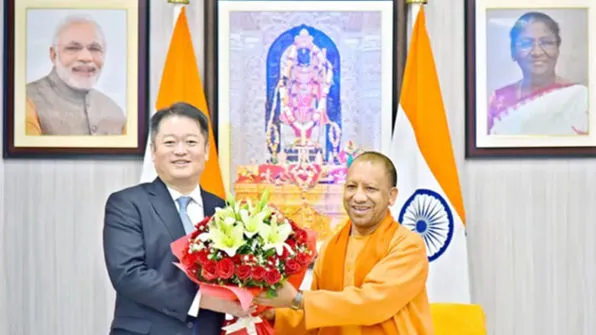Recently, in an exclusive interview with NewsX, Sahil Khanna, Owner & Director, Romsons Group of Industries shared his valuable insight about the effect of corona pandemic on the medical sector and the loopholes healthcare system has in India. He also talks about the products and services his company provides and how they dealt with the challenges posed by the pandemic.
Talking about the pandemic and the lockdown, Mr. Sahil Khanna said that “COVID-19 is one of the greatest challenges we’ve ever faced. It is not only causing a crippling effect on multiple economies in societies but also highlighting the gaps in our healthcare systems.”
With reference to their experience during the lockdown he said “ The first week was challenging as there was such uncertainty and there was a sudden need to procure necessary approvals from authorities.” The next challenge was manpower as there was a severe labour shortage on account of the workers going back to the villages. To adhere to the Government’s guidelines, they cut their manpower to 50% of full capacity. Their priority was to safeguard their workers. Hence, free meals and accommodation were provided to them.
Moreover, as they were providing an essential service, they needed to ensure that there would be a smooth procurement of raw materials. They had to ensure that their raw material suppliers would get necessary approvals as well to resume manufacturing. He then highlighted the company’s challenge of optimising the manufacture of their COVID-19 centric product range to meet rise in demand such as masks, hand sanitisers, surface wipes, and other disposable medical gear.
The final challenge was to overcome the fear and hesitation of the supply chain and the distributers. They ensured that their customers would get door-to- door delivery wherever their distributers stopped supplying.
Romsons group is known for already having world class manufacturing units, approvals and licences from all competent authorities in the world. The Group’s mantra of consistency and quality has proven itself time and again and Mr. Khanna gives the credit to the “in-house quality control department” which leaves no scope for error.
In 2010, Romsons decided to diversify their product portfolio and venture into new product categories to expand their consumer base. Hence, they delved into market research of adult diapers and their conclusions were shocking. They realised that there was an interminable gap between the demand and supply of adult diapers in the Indian market. About 80% demand was being met by imports from various countries that were dumping factory rejects into the Indian market. They saw it as their moral and social responsibility to create good quality adult diaper products at affordable prices. This initiative was named Dignity.
Dignity became a patient care division and Dignity was recently named the Number 1 Adult Diaper in the Indian market and the initiative has now added a multitude of products. From maternity pads, baby wipes to surface cleansing products.
Romsons Group has been a market leader and pioneer in the manufacture of medical and personal hygiene product production. It was the 1st Indian company in 1962 which manufactured disposable medical equipment. They have now scaled to more than 200 products and have become very well established in a very short span of time. The vision for the future is to transform the personal hygiene experience and make their products available in every chemist shop in the country.
Mr. Khanna then shared the three lessons he learnt through the course of the pandemic. “Speed and agility “, he says “Act as per market demand and the current situation. The speed at which you can transform and adapt your manufacturing process to cater to the market demand at the time of crisis makes all the difference.”
The second lesson according to him was “Crisis management: Unexpected crises are a part and parcel of life and it’s important to manage and deal with them to the best of our ability. For us, getting approvals to start manufacturing again was extremely challenging.”
The most important, however, he reserved for the last. “Team motivation. During challenging times, we need to keep our teams motivated to resume manufacturing. I give our teams all the credit as they were risking their lives every time they stepped out of the house”













